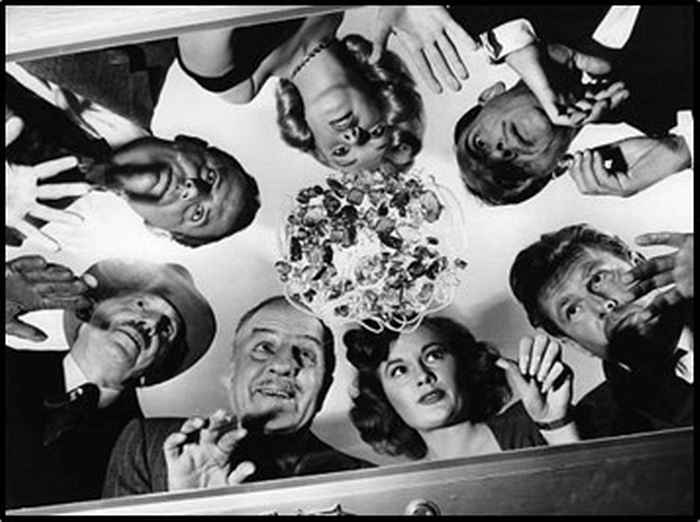Heist Politics
- Date
- 3 April 2024
- Time
- 16:00
- Location
- University Library
- Room
- Doelenzaal

What explains the continuing popularity
of the heist scenario in films and TV
series? Aside from an allegory of the
existential vagaries of human desire and
its lost object, may one find in these
subgeneric narratives, in which a group
of criminals executes a daring robbery
against a fortress-like institution, some
deeper political sense? Might the heist
film be thinking about the very
possibility of politics as such?
This talk will explore the emergence of the Hollywood noir heist film in the 1950s. This subgenre established itself by way of a remarkable transformation of the robbery sequence into a central and relatively autonomous part of the plot, which may at first be glimpsed simply in quantitative terms: from the short robbery sequences in The Killers (Siodmak, 1946) and Criss Cross (Siodmak, 1949)—the two proto-heists of the period—we go to the twelve-minute robbery in Asphalt Jungle (Huston, 1950) and then to the half-hour-long orchestrations of theft in Rififi (Dassin, 1955) and The Killing (Kubrick, 1956)—the films in which the noir heist achieves what, borrowing from Stanely Cavell’s theory of genre, we may call a moment of “absolute explicitness.” Alongside the quantitative expansion of the robbery sequence, however, there occurs also a significant qualitative shift in the mode of representation that sustains the heist. In her book, The Process Genre: Cinema and the Aesthetic of Labor, Salomé Skvirsky recently described this qualitative shift in terms of a move away from classical representation of action and toward processual representation, a generic mode with distinct formal and syntactical features. Taking up Skvirsky’s theorization of the process genre, the lecture will propose that the significance of the heist lies not merely in the depiction of a process (or in the aesthetics of labor, as Skvirsky also calls it), but in what Jean-Paul Sartre in his Critique of Dialectical Reason—a book roughly contemporaneous with the emergence of the heist film—conceptualized as the dialectical tension between process (activity in the field of the practico-inert) and praxis (activity of a collective project). The lecture will conclude by suggesting that it is precisely from this tension between process and praxis that one may begin to elaborate the political idea of the heist.
Luka Arsenjuk is Associate Professor of Cinema and Media Studies and Core Faculty member of the Comparative Literature Program at the University of Maryland (College Park). He is the author of Movement, Action, Image, Montage: Sergei Eisenstein and the Cinema in Crisis (University of Minnesota Press, 2018) and currently serves as one of the editors for Discourse: Journal for Theoretical Studies in Media and Culture.
